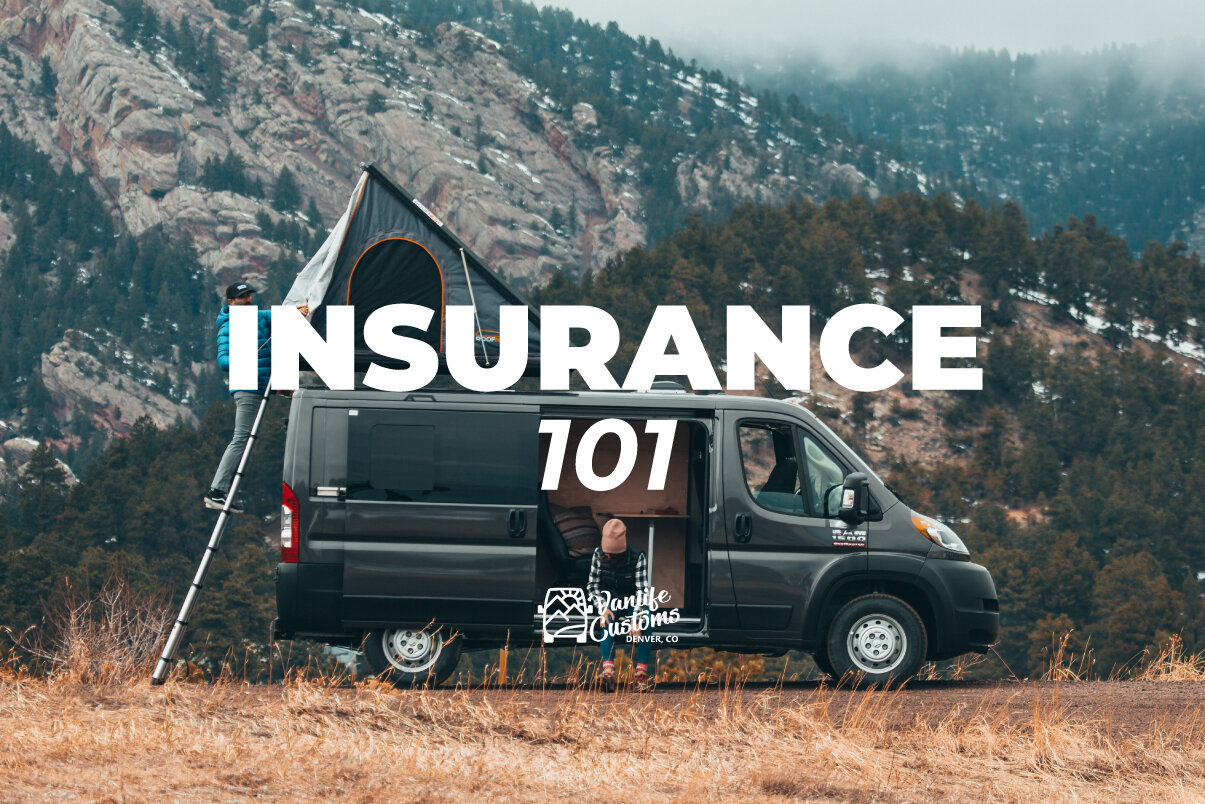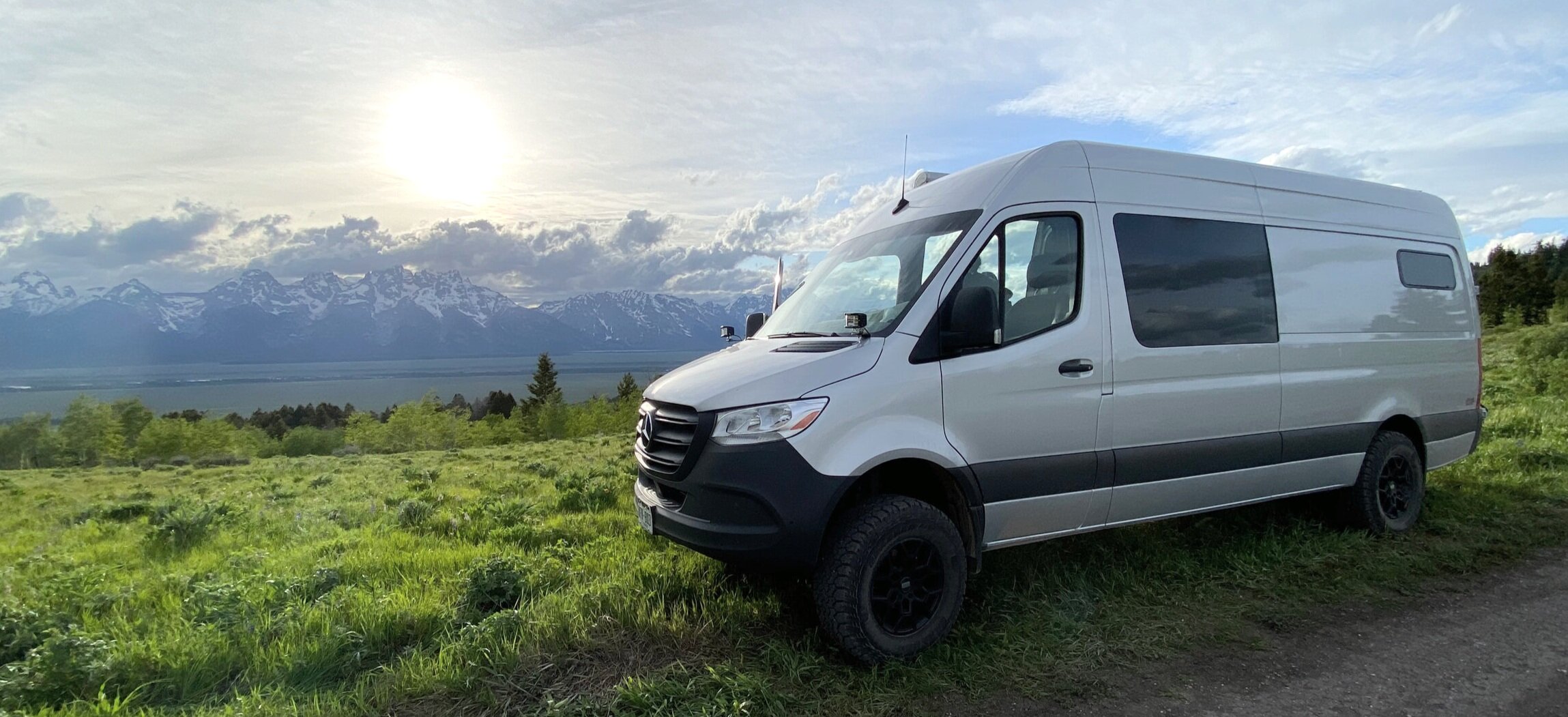Insurance 101 - How to Insure Your Conversion van
You sold a kidney, worked that side gig, and finally bought the dream van you’ve always wanted. By now, you might be familiar with the challenge of finding appropriate and reasonably priced insurance. We’ve reached out to Mark Myers, an insurance agent and proud fellow van owner, to help out.
Here are the best practices for insuring a van that a professional shop has converted.
By Insurance Expert, Mark Myers
PROFESSIONAL CONVERSIONS VS SELF-CONVERSIONS
Insurers generally distinguish between professional conversions and self-conversions. Truth be told, it is a bit trickier to insure self-converted vans due to the uncertainty of the work’s quality and the decreased clarity of the insurable value. Some insurers just plain won’t do it.
But what counts as a professional conversion? Easy. It is a conversion performed by a company whose primary business is van conversions and who has a well-established business with a web presence. Like Vanlife Customs, for example.
Many insurers offer roadside assistance. Sure beats changing a tire in your flip flops… with socks?
THE DON'TS OF CAMPERVAN INSURANCE
We know you're looking for the cheapest deal, and the fastest process, but sometimes cheap and fast aren't always the best. Here are few things NOT TO DO when looking for campervan insurance:
DO NOT insure your van by simply telling your insurer the vehicle make/model/VIN. You need to be able to communicate your van’s awesome customizations. If you insure your van this way and have a total loss, you won’t recover the value of the customizations that have been added.
DO NOT toss your receipts for all of the work done and money spent on the van (including taxes, title, and license fees). This is how you can prove what your van is worth to the insurance company.
DO NOT claim that your van is not your full-time residence when it is. If you live in your van more than six months out of the year, most insurers consider you a full-timer. Even though it costs less to say you are not a full-timer, it could be regarded as insurance fraud and that’s no joke. Any claims could get declined entirely.
DO NOT get insurance just by adding the van to your current policy. Customized van insurance premiums vary wildly between companies. You are far better off financially to get a separate policy with a different company than you currently use in many cases.
THE DO’S
Alright, so what do I do?
DO use an insurance broker and preferably one who has experience with conversions and understands Vanlife. Brokers can shop multiple carriers, saving you time and headaches. In most states including Colorado, state law prohibits brokers from charging fees. You pay the same rate as if you went online and got a quote yourself.
DO get a quote more than two weeks before you need the insurance. Many carriers offer a discount called ‘advance quote’. Cha-ching.
DO pay in full upfront and pay with EFT (checking account) instead of credit card to get the lowest possible price.
DO have a clean driving record (tickets and accidents) and zero to a few claims in your insurance history. If you’re married and one spouse has a better record, request to make her the policy’s primary insured.
Silver Bullet Van in front of the Tetons. @Vanlife.Customs
SHOULD I RE-TITLE MY CONVERSION TO RV?
Absolutely. When your conversion is completed, put the effort in to re-title the van with the Department of Motor Vehicles (DMV) as an RV.
Why? Because it is much easier for the insurance company to understand and assess risk. Additionally, insurers consider RVs more likely to be owned by responsible folks and used in lower-risk scenarios than cargo vans which are more likely to be rushing around urban centers in traffic. This typically equals lower premiums. Oh yeah!
HOW DO I RE-TITLE MY CONVERSION?
The process may look different depending on the state you are titling and registering the vehicle in. Here’s how it’s done in Colorado.
You need to make an appointment with the Colorado State Patrol for a “VIN inspection”. You will also need to have a few documents in hand for the inspection:
Registration and title and/or dealer purchase papers
A certified weight slip. You do need to weigh your campervan and provide the certified weight slip to the DMV for re-title. Truck stops or gas stations usually have weigh stations where you can obtain the certified weight slip.
A statement of fact. This is a one-page sheet that the DMV gives you to write all the improvements you’ve made. To obtain an RV re-title, a campervan must have at least 4 out of the 6 “permanently installed and independent life support systems” for:
Cooking
Heating and/or Air conditioning
Separate 110-125 volt electrical power supply and/or LP gas supply
Once you have retitled your van as an RV you can obtain RV insurance, which gives you the best possible rate and correctly classifies the use of your van for both the DMV and insurance companies. Woop Woop!
Now get out there and enjoy that van with all the peace of mind you deserve!
Mark Myers is an insurance brokerage owner in Wheat Ridge, CO who specializes in helping personal and commercial clients insure custom vans, homes, and autos. He has insurance partners licensed in 40 U.S. states who can help with conversion van insurance. He’s an enthusiastic mountain biker and vanlifer who loves to explore the region with his wife Alyssa and dog Quigley.









